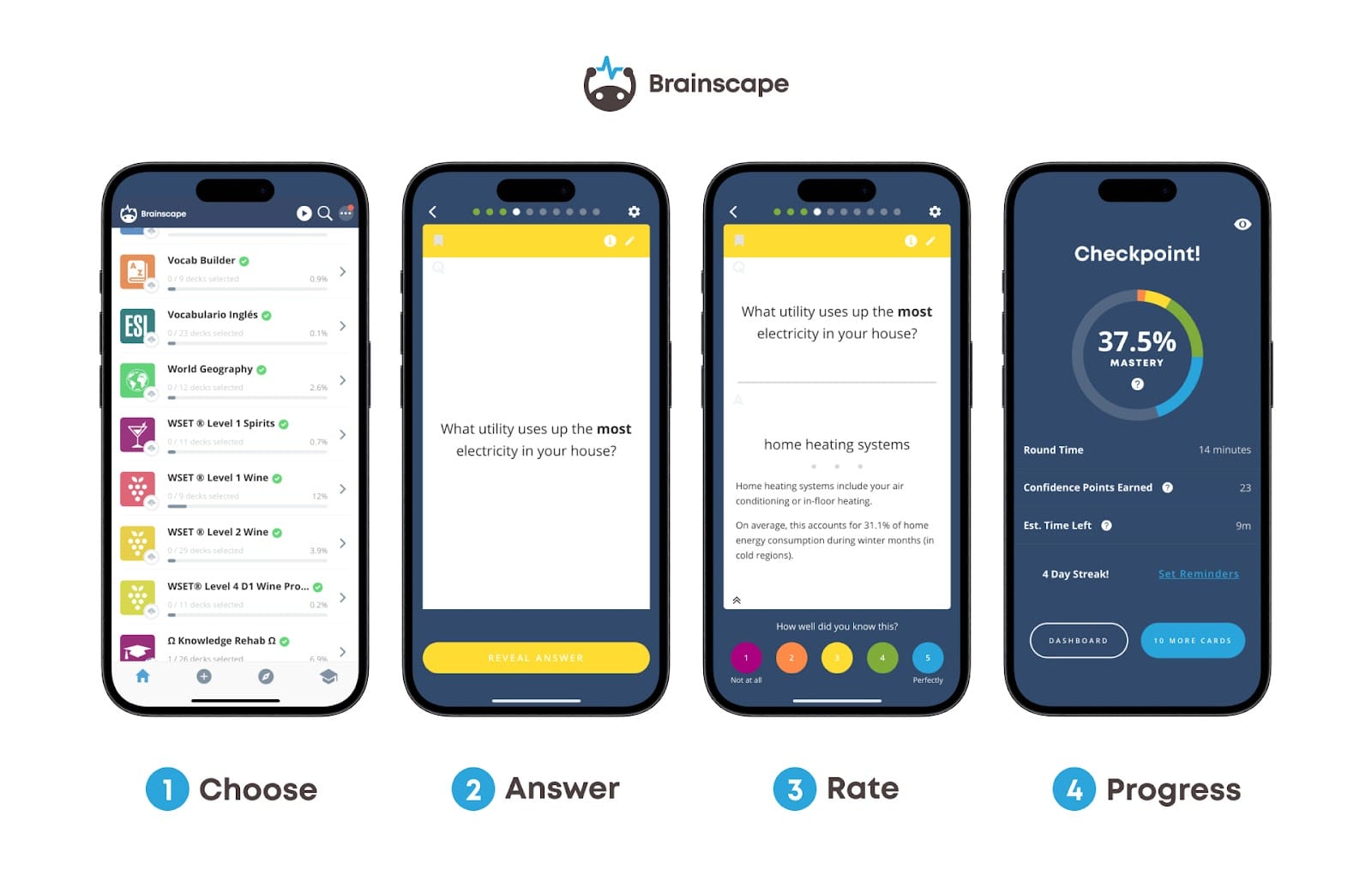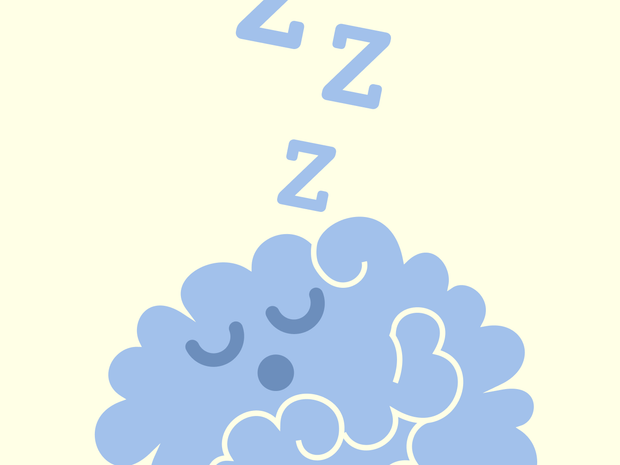Ever heard the phrase you snooze, you lose? Well, science begs to differ.
Napping might carry the stigma of laziness, but what many don’t realize is that just because you're off your feet doesn't mean your inactive. In fact, your brain is hard at work during your siesta, and science is just now starting to make sense of it all.
Napping isn't lazy—it’s one of the most underrated productivity hacks out there. And if you're trying to study smarter (not just harder), giving your brain a break might be exactly what it needs to actually retain what you’re learning.
Let’s explore how different nap lengths affect your memory, creativity, and emotional balance—plus how to use naps strategically to level up your studying.
How Naps Help You Learn (Yes, Even Short Ones)
💤 20–30 Minutes:
Quick power naps get you into the lightest stages of sleep, which is enough to improve alertness, focus, mood, and even memory. Think of this as a “refresh” button for your brain.
🧠 30–60 Minutes:
A longer nap gets you into deep sleep (slow-wave sleep, or SWS), which is ideal for solidifying those facts and concepts you just studied. It’s like taking what you learned and putting it into long-term storage.
😴 60–90 Minutes:
These luxurious naps allow your brain to enter REM sleep—the stage tied to emotional memory and creative thinking. If your study material is dense or emotionally charged (hello, Shakespeare or psych lectures), this is the nap for you.
Naps Fuel Creativity (Seriously)
When your brain’s in REM sleep, it's like it's hosting a little brainstorming party in your subconscious. Studies show that this stage helps form connections between ideas, extract patterns, and solve creative problems.
So, if you’re stuck on a tricky essay topic or a math problem that feels like a riddle from another dimension? A nap could be the key to cracking it. REM sleep lets your brain mix and match ideas in fresh ways, boosting out-of-the-box thinking.
Nap for a Happier, Calmer You
Ever feel like the world’s worst version of yourself after a sleepless night? (Just us?) Turns out naps, especially those that reach REM, can help regulate your emotions. Napping has been shown to reduce negative reactivity, increase positivity, and even lessen your physiological response to stress.
Basically, if you’re feeling cranky or overwhelmed while studying, a nap might be more helpful than another espresso shot.
A Few Quick Caveats
- Sleep inertia: Waking from deep sleep can make you groggy. Give yourself 30 minutes to reboot fully.
- Don’t nap too late: Late naps can mess with your nighttime sleep. Aim for early to mid-afternoon.
- Make it a habit: Regular napping has cumulative benefits, but even the occasional nap is a win.
Want a Smarter Way to Learn? Pair Naps with Brainscape
Brainscape is the world’s most efficient flashcard app, using spaced repetition to help you study smarter. You review content at just the right time—right before your brain forgets it—so you can lock it into long-term memory. And what happens when you combine Brainscape’s science-backed study system with strategic naps? That’s a recipe for memory mastery.

Just study a little, snooze a little, and repeat. Brainscape makes the “study” part easy, and your brain handles the rest while you sleep.
FAQ: Can Naps Boost Creativity and Memory?
Are naps good for creativity?
Yes, especially naps that include REM sleep (usually reached in naps lasting 60 to 90 minutes). REM is linked to pattern recognition, creative insight, and the ability to connect seemingly unrelated ideas, all of which are essential functions for creative thinking.
Does taking naps improve memory?
Absolutely. Naps, particularly those that include slow-wave sleep (SWS), are proven to support memory consolidation. This helps transfer new information from short-term to long-term memory, making what you study stick better.
What is the 30–90 rule for taking a nap?
The idea behind the 30–90 rule is that naps should be either short enough to avoid deep sleep (around 30 minutes) or long enough to complete a full sleep cycle (about 90 minutes). This helps minimize grogginess from waking up in the middle of deep sleep.
Does sleep boost creativity?
Yes. Sleep, especially REM sleep, enhances creative problem-solving by allowing the brain to form novel associations between ideas. Both overnight sleep and well-timed naps can lead to breakthroughs in creative thinking.
Final Thoughts: Sleep On It
The verdict is in: naps don’t just feel good—they actually help your brain work better. From sharpening your memory to boosting creativity and emotional regulation, a well-timed nap is one of the most underrated study tools in your toolbox.
So the next time you hit that 3 p.m. slump while reviewing flashcards in Brainscape, don’t guilt yourself into powering through. Listen to your brain. Take a nap. Come back sharper, happier, and ready to crush your next study session. Snoozers don’t lose—they win smarter.
Additional Reading
- How and When to Take Study Breaks for Optimal Learning
- Can you learn while sleeping? The relationship between studying and sleep
- What's the Best Time of Day to Study for Optimal Learning?
Sources
Alger, S. E., Lau, H., & Fishbein, W. (2010). Delayed onset of a daytime nap facilitates retention of declarative memory. PLoS ONE 5(8): e12131. doi:10.1371/journal.pone.0012131
Alger, S. E., Lau, H., & Fishbein, W. (2012). Slow wave sleep during a daytime nap is necessary for protection from subsequent interference and long-term retention. Neurobiology of Learning and Memory, 98, 188-196. http://dx.doi.org/10.1016/j.nlm.2012.06.003
Cai, D. J., Mednick, S. A., Harrison, E. M., Kanady, J. C., & Mednick, S. C. (2009). REM, not incubation, improves creativity by priming associative networks. Proceedings of the National Academy of Sciences, 106(25), 10130-10134. https://doi.org/10.1073/pnas.0900271106
Gujar, N., McDonald, S. A., Nishida, M., & Walker, M. P. (2010). A role for REM sleep in recalibrating the sensitivity of the human brain to specific emotions. Cerebral Cortex, bhq064. https://doi.org/10.1093/cercor/bhq064
Hayashi, M., Motoyoshi, N., & Hori, T. (2005). Recuperative power of a short daytime nap with or without stage 2 sleep. Sleep, 28(7), 829-836. https://doi.org/10.1093/sleep/28.7.829
Lahl, O., Wispel, C., Willigens, B., & Pietrowsky, R. (2008). An ultra short episode of sleep is sufficient to promote declarative memory performance. Journal of Sleep Research, 17, 3-10. https://doi.org/10.1111/j.1365-2869.2008.00622.x
Lau, H., Tucker, M. A., Fishbein, W. (2010). Daytime napping: Effects on human direct associative and relational memory. Neurobiology of Learning and Memory; 93(4), 554-60. https://doi.org/10.1016/j.nlm.2010.02.003
Lau, H., Alger, S. E., & Fishbein, W. (2011). Relational memory: A daytime nap facilitates the abstraction of general concepts. PLoS ONE 6(11), e27139. doi:10.1371/journal.pone.0027139
Nishida, M., Pearsall, J., Buckner, R. L., & Walker, M. P. (2009). REM sleep, prefrontal theta, and the consolidation of human emotional memory. Cerebral Cortex, 19, 1158-1166. https://doi.org/10.1093/cercor/bhn155
Pace-Schott, E. F., Shepherd, E., Spencer, R., Marcello, M., Tucker, M., Propper, R. E., & Stickgold, R. (2011). Napping promotes inter-session habituation to emotional stimuli. Neurobiology of Learning and Memory, 95(1), 24-36. https://doi.org/10.1016/j.nlm.2010.10.006
